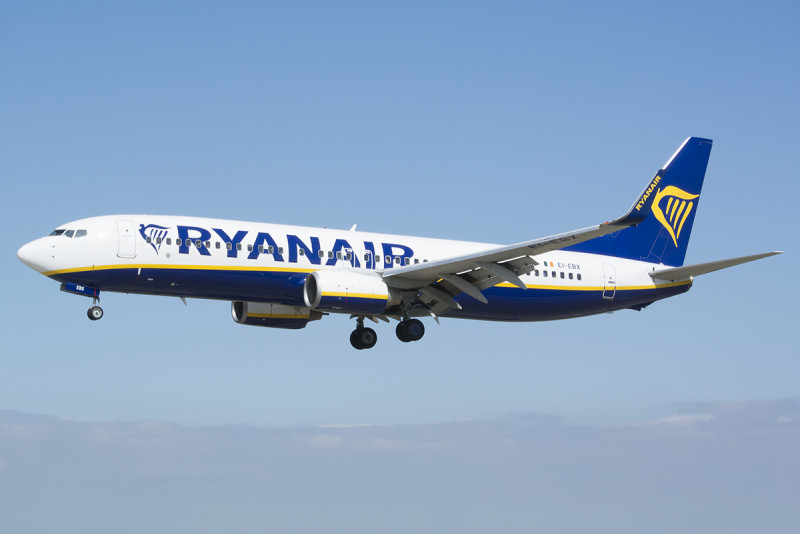Ryanair is an Irish ultra-low-cost airline group, with its parent company, Ryanair Holdings plc, headquartered in Dublin, Ireland. Founded in 1984, Ryanair DAC is the oldest airline within the group, which has expanded to include Malta Air, Buzz, Lauda Europe and Ryanair UK. Ryanair Holdings was created in 1996 to act as a holding company, sharing the same board and executives as Ryanair. In 2019, the group transitioned to operate as separate sister airlines under the Ryanair Holdings umbrella, with Malta Air joining the group the same year.
1956: Eugene O'Neill born
In 1956, Eugene O'Neill, first chief executive of Ryanair, was born.
1984: Ryanair DAC founded
In 1984, Ryanair DAC, the oldest airline of the Ryanair group, was founded.
1985: Operations Begin
In 1985, Ryanair began operations, flying a 15-seat Embraer Bandeirante turboprop aircraft between Waterford and Gatwick Airport.
1986: Second Route Added
In 1986, Ryanair added a second route from Dublin to Luton, directly competing with Aer Lingus/British Airways duopoly, carrying 82,000 passengers that year.
1986: Stake in London European Airways
In 1986, the directors of Ryanair acquired an 85% stake in London European Airways.
September 1987: Sacking of Eugene O'Neill
In September 1987, Tony Ryan sacked Ryanair's first chief executive, Eugene O'Neill, who subsequently sued for wrongful dismissal.
1987: Connection with Luton Ryanair Service
From 1987, London European Airways provided a connection with the Luton Ryanair service onward to Amsterdam and Brussels.
1988: Michael O'Leary Joins Ryanair
In 1988, London European operated as Ryanair Europe and Michael O'Leary joined Ryanair as chief financial officer.
1989: Short Sandringham Sponsorship
In 1989, a Short Sandringham was operated with Ryanair sponsorship titles but never flew revenue-generating services for the airline.
1990: Restructuring and Low-Fares Model
In 1990, Ryanair restructured and copied the low-fares model of Southwest Airlines after Michael O'Leary visited the company.
1992: Darley Investments Built the Facility at Dublin Airport
In 1992, Darley Investments built the facility that would later house Ryanair's head office at Dublin Airport.
1992: EU Deregulation Opportunity
In 1992, the European Union's deregulation of the air industry provided Ryanair with a major opportunity to operate scheduled services between EU states.
1994: Michael O'Leary Becomes CEO
In 1994, Michael O'Leary became the sixth chief executive officer of Ryanair, leading to clashes with Tony Ryan.
1994: O'Leary's Strategy Description
In a 1994 lecture, Michael O'Leary described Ryanair's strategy, including adopting a simple all-Boeing 737 fleet.
1996: Ryanair Holdings Established
In 1996, Ryanair Holdings was established as a holding company for Ryanair, sharing the same board and executive officers.
1997: Airline Goes Public
In 1997, Ryanair went public, using the funds raised to expand into a pan-European carrier.
1997: Deregulation of Aviation Industry in Europe
In 1997, the deregulation of the aviation industry in Europe contributed to Ryanair's rapid expansion.
1998: Boeing 737-800 Order
In 1998, Ryanair placed a US$2 billion order for 45 new Boeing 737-800 series aircraft after a successful flotation.
2000: Website Launch
In 2000, Ryanair launched its website, initially considering online booking a small component but it grew to handle three-quarters of bookings within a year.
2001: New Base in Charleroi Airport
In 2001, Ryanair launched a new base of operations in Charleroi Airport and ordered 155 new 737-800 aircraft from Boeing.
2002: Aer Lingus Low-Fares Strategy
From 2002, Aer Lingus shifted to a low-fares strategy, leading to increased competition with Ryanair on Irish routes.
2002: Ryanair Refused to Provide Wheelchairs at London Stansted Airport
In 2002, Ryanair refused to provide wheelchairs for disabled passengers at London Stansted Airport, leading to criticism from disabled rights groups.
2002: Ryanair Ordered to Pay Damages for Renegeing on Prize
In 2002, the High Court of Ireland in Dublin awarded Jane O'Keefe €67,500 damages after Ryanair reneged on a free travel prize she was awarded for being the airline's 1 millionth passenger.
2002: 737-800 Aircraft Delivery Start
In 2002, the delivery of 155 new Boeing 737-800 aircraft ordered in 2001 started, scheduled over eight years.
April 2003: Acquisition of Buzz
In April 2003, Ryanair acquired its competitor Buzz from KLM.
2003: Revenues Rise to €640 million
In 2003, Ryanair's revenues rose to €640 million.
2003: Competition with MyTravelLite
In 2003, when MyTravelLite started competing with Ryanair on the Birmingham to Dublin route, Ryanair launched competing flights on some of MyTravelLite's routes until MyTravelLite pulled out.
May 2004: EU Enlargement and New Routes
The enlargement of the European Union on 1 May 2004 opened the way to more new routes for Ryanair.
September 2004: EasyJet Announces Routes to Ireland
In September 2004, EasyJet announced routes to Ireland for the first time, beginning with the Cork to London Gatwick route, directly competing with Ryanair. EasyJet later withdrew some of these routes.
2004: Court Ruling Led to Shared Responsibility for Wheelchair Provision
In 2004, a court ruling judged that the responsibility for wheelchair provision should be shared by the airline and the airport owners, leading Ryanair to add a surcharge of £0.50 to all its flight prices.
2004: Ryanair Head Office Located on Dublin Airport Property
Since 2004, Ryanair's head office had been located on the property of Dublin Airport, near the Aer Lingus head office.
August 2005: Passenger Claim
In August 2005, Ryanair claimed to have carried 20% more passengers within Europe than British Airways.
2005: Aircraft Delivery Delays
By the end of 2005, approximately 100 of the Boeing 737-800 aircraft had been delivered, although there were slight delays due to production disruptions.
2005: Previous OFT Referral
In April 2008, Christopher Graham, director general of the ASA, noted that the last formal referral to the OFT before Ryanair's investigation occurred in 2005.
February 2006: Dispatches Documentary
On 13 February 2006, Britain's Channel 4 broadcast a Dispatches documentary, "Ryanair caught napping", criticizing Ryanair's training policies and security procedures; Ryanair denied the allegations.
April 2006: Withdrawal of Dublin–Cardiff route
In April 2006, Ryanair announced it would withdraw service on the Dublin–Cardiff route due to a failure to reach an agreement on a new commercial contract. Airport management rebutted Ryanair's claims that airport charges were unreasonably high.
September 2006: Passenger Traffic and Revenue Growth
For the six months ending on 30 September 2006, Ryanair's passenger traffic grew by more than a fifth to 22.1 million, and revenues rose by a third to €1.256 billion.
October 2006: Newcastle-Gothenburg Ferry Service Scrapped
In October 2006, DFDS Seaways cited competition from low-cost air services, especially Ryanair, as the reason for scrapping the Newcastle–Gothenburg ferry service.
October 2006: Takeover Bid for Aer Lingus
On 5 October 2006, Ryanair launched a €1.48 billion bid to buy Aer Lingus, which was rejected on the same day for undervaluing the airline.
2006: Early Day Motion Criticised Ryanair's Customer Service
In 2006, an early day motion in the British Parliament criticised Ryanair for not offering customers the possibility of contacting it by email or webform, and called on the company to provide customers with a means to contact the company by email.
April 2007: Plans for a Long-Haul Airline
In April 2007, Michael O'Leary stated Ryanair planned to launch a new long-haul airline around 2009 with low-cost and business class services.
August 2007: Airport Check-In Charges
In August 2007, Ryanair started charging passengers to check in at the airport, reversing its policy of paying for online check-in.
2007: Belfast Route Advertisement Controversy
In 2007, Ryanair's advertisement for its new Belfast route featured Sinn Féin's Martin McGuinness and Gerry Adams with a speech bubble saying "Ryanair fares are so low even the British Army flew home". This caused anger among Ulster Unionists, although the Advertising Standards Authority did not believe it would cause widespread offense.
April 2008: OFT Probe Over Misleading Adverts
In April 2008, Ryanair was investigated by the UK Office of Fair Trading (OFT) after receiving complaints regarding its advertisements. It was discovered that Ryanair had violated advertising regulations seven times in two years. Christopher Graham, director general of the ASA, said formal referrals to the OFT were rare.
December 2008: Second Takeover Bid of Aer Lingus
On 1 December 2008, Ryanair launched a second takeover bid of Aer Lingus, offering an all-cash offer of €748 million.
2008: Irish High Court Investigation
In 2008, Ryanair asked the Irish High Court to investigate why it was refused permission to fly from Ireland West Airport to Dublin. Ryanair criticised the process by which Aer Arann was then allowed to start flights.
2008: Rent Increased on Ryanair's Head Office Facility
In 2008, the annual rent on Ryanair's head office facility increased to €244,000 per year for the remainder of the lease.
January 2009: Withdrawal from Aer Lingus Takeover Bid
On 22 January 2009, Ryanair walked away from the Aer Lingus takeover bid after it was rejected by the Irish government.
February 2009: Airbus Negotiations Denied
In February 2009, Airbus Chief Commercial Officer John Leahy denied that any negotiations were taking place with Ryanair, despite Ryanair's claims of potential aircraft orders.
February 2009: Toilet Charge Proposal
In February 2009, Michael O'Leary mentioned in a BBC News interview that Ryanair was considering charging passengers £1 to use the toilet on flights. This generated significant media attention and overshadowed the announcement of removing check-in desks in favor of online check-in. O'Leary later admitted it was a publicity stunt.
February 2009: Check-In Desk Closure Plan
On 21 February 2009, Ryanair confirmed it was planning to close all check-in desks by the start of 2010.
June 2009: First Annual Loss Reported
In June 2009, Ryanair reported its first annual loss, posting a loss of €169 million for the financial year ending 31 March.
July 2009: Agreement with OFT
In July 2009, Ryanair agreed with the OFT to increase the clarity and transparency of its website and advertising. The airline's website was updated to state that "fares don't include optional fees/charges" and included a table of fees for easier fare comparisons.
September 2009: Fleet reached 200 aircraft
On 5 September 2009, Ryanair's fleet reached 200 aircraft for the first time. All aircraft in the Ryanair fleet have been retrofitted with performance-enhancing winglets and the more recent deliveries have them fitted as standard.
October 2009: Implementation of Online Check-in
In October 2009, Ryanair implemented online check-in, with passengers able to leave luggage at a bag drop.
November 2009: Negotiations with Boeing Proceed Poorly
In November 2009, Ryanair announced that negotiations with Boeing had proceeded poorly, and that Ryanair was thinking of stopping the negotiations.
December 2009: Negotiations with Boeing Fail
In December 2009, Ryanair confirmed that negotiations with Boeing had indeed failed, but plans were to take all 112 aircraft already on order.
2009: Ryanair Abolished Airport Check-In
In 2009, Ryanair abolished airport check-in, replacing it with a fast bag drop for passengers checking in bags, and requiring all passengers to check-in online and print their boarding pass.
2009: Harsh negotiating with Shannon Airport
In 2009, Ryanair was reported to have adopted "harsh" negotiating tactics with Shannon Airport, threatening to close 75% of its operations there from April 2010.
2009: Ancillary Revenue Statistics
In 2009, twenty per cent of Ryanair's revenue was generated from ancillary revenue, amounting to €598 million out of a total revenue of €2,942 million.
2009: Planned Launch of Long-Haul Airline
In April 2007 Ryanair's CEO stated Ryanair planned to launch a new long-haul airline around 2009, but this didn't happen.
February 2010: Long-Haul Airline Launch Delayed
In February 2010, O'Leary said the launch of the new long-haul airline would be delayed until 2014, at the earliest, due to the shortage of suitable, cheap aircraft.
April 2010: Ryanair ends refusals to comply with EU regulations
In April 2010, Ryanair ended its refusals to comply with EU regulations regarding reimbursement of stranded passengers after flight disruptions caused by the 2010 eruptions of Eyjafjallajökull in Iceland. Ryanair described the regulations as 'unfair' in a statement released on 22 April 2010. Also in April 2010, Ryanair cancelled all routes from Budapest Liszt Ferenc Airport after failing to reduce fees with the airport's management.
April 2010: Threats to Shannon Airport operations
In April 2010, Ryanair threatened to close 75% of its operations at Shannon Airport, due to what was reported as "harsh" negotiating in 2009.
June 2010: Ryanair calls for Irish government to scrap tourist tax
In June 2010, Ryanair urged the Irish government to eliminate its tourist tax, suggesting it was damaging tourism in Ireland.
July 2010: Advertising Controversy
In July 2010, Ryanair faced controversy regarding allegedly misleading advertising. Following a complaint from rival carrier EasyJet, the ASA ruled that Ryanair's £10 one-way fares to European destinations offer was "likely to mislead".
August 2010: Ryanair announces Plovdiv-London Stansted route
In August 2010, Ryanair announced its first Bulgarian destination, connecting Plovdiv with London Stansted, with two weekly flights starting in November 2010.
October 2010: Competition Inquiry
In October 2010, UK competition regulators opened an inquiry due to concerns that Ryanair's stake in Aer Lingus may lead to a reduction in competition.
November 2010: Ryanair announces Plovdiv-London Stansted route
In August 2010, Ryanair announced its first Bulgarian destination, connecting Plovdiv with London Stansted. The service was planned to start in November 2010 with two flights weekly.
2010: End of 737-800 Aircraft Delivery
By 2010, the 155 new Boeing 737-800 aircraft were delivered, ordered in 2001.
2010: Ryanair reports loss in last three months of 2010
In 2010, Ryanair experienced a loss of €10.3 million in the last three months, slightly better than the €10.9 million loss in the same period the previous year. Over 3,000 flights were cancelled due to strikes and severe weather.
2010: Revenues Rise to €4.66 Billion
In 2010, Ryanair's revenues rose to €4.66 billion, and net profits increased to €339 million.
2010: Check-in desks close
On 21 February 2009, Ryanair confirmed it was planning to close all check-in desks by the start of 2010, and it did.
February 2011: Ryanair Sued for Unfair Surcharges
In February 2011, a Ryanair passenger, Miro Garcia, brought a claim against Ryanair for unfair surcharges, specifically the €40 surcharge on passengers who failed to print out a boarding card before arrival at the airport.
March 2011: Ryanair opens new maintenance hangar at Glasgow Prestwick International Airport
In March 2011, Ryanair opened a new maintenance hangar at Glasgow Prestwick International Airport, establishing it as the airline's largest fleet maintenance base.
April 2011: Banned Advert
In April 2011, Ryanair advertised "a place in the sun" destinations, but the advert was banned when it was found that some destinations experienced sunshine for as little as three hours per day and temperatures between 0 and 14 °C.
April 2011: Ryanair Added Surcharge to Cover Costs of EC Regulation 261/2004
On 4 April 2011, Ryanair began adding a surcharge of €2 to its flights to cover the costs arising from compliance with EC Regulation 261/2004, which requires it to pay for meals and accommodation for passengers on delayed and cancelled flights.
June 2011: Ryanair and COMAC sign agreement to cooperate on C-919 development
In June 2011, Ryanair and COMAC signed an agreement to collaborate on the development of the C-919, which is a competitor to the Boeing 737.
November 2011: Ryanair cuts capacity by grounding 80 aircraft
In November 2011, Ryanair began cutting capacity by grounding 80 aircraft due to high fuel costs and weak economic conditions.
November 2011: Appeals Court in Spain Overturned Ruling Against Ryanair
In November 2011, the Appeals Court in Spain overturned the ruling against Ryanair, holding that the surcharge for not printing boarding passes complies with international law.
December 2011: Ryanair to Fight Against UK Treasury's Plan to Ban "Rip-Off" Charges
In December 2011, Ryanair announced that it would fight against the UK Treasury's plan to ban what Which? magazine called "rip-off" charges made when customers paid by credit card.
2011: Design agreement with Comac
In 2011, Ryanair signed a design agreement with Comac to help produce a rival jet to Boeing's offerings and showed interest in other aircraft, including the Comac C919.
2011: Former Ryanair Captain Awarded Financial Compensation
In 2011, a former Ryanair captain was awarded financial compensation by an employment tribunal in London after being fired for handing out a union form to a cabin crew member while on duty.
2011: Airline efficiency rating
In 2011, an airline efficiency rating was conducted that Ryanair would later use in 2020 to misleadingly advertise itself as "Europe's… Lowest Emissions Airline".
2011: Cited data from 2011 invalid
In February 2020, the ASA found that Ryanair cited data from 2011 which was "of little value as substantiation for a comparison made in 2019".
2011: Directive on Consumer Rights
Ryanair did not offer customers the possibility of contacting it by email or webform, only through a premium rate phone line, by fax or by post; however, it does now have a web form contact option and a live chat.
April 2012: Ryanair cuts capacity by grounding 80 aircraft
In April 2012, Ryanair continued cutting capacity by grounding 80 aircraft due to high fuel costs and weak economic conditions; grounding of the aircraft began in November 2011.
June 2012: Ryanair Faced Criticism Over Check-In Changes
As of June 2012, Ryanair faced criticism over the ambiguous nature of changes to its check-in policy, including fees for boarding pass re-issuance and luggage check-in at the airport.
June 2012: Ryanair Chief Executive announces intention to make an all-cash offer for Aer Lingus
On 19 June 2012, Ryanair Chief Executive Michael O'Leary announced his intention to make an all-cash offer for Aer Lingus.
July 2012: Ryanair Criticized for Treatment of Disabled Passenger
In July 2012, a 69-year-old woman, Frances Duff, was refused permission to bring her medical kit on board a Ryanair flight and was asked to lift her shirt in front of fellow passengers to prove she had a colostomy bag, despite having a doctor's letter.
July 2012: Madrid Diversion and Emergency Declarations
On 26 July 2012, three Ryanair aircraft inbound to Madrid–Barajas Airport diverted to Valencia Airport because of severe thunderstorms. All three aircraft declared an emergency (Mayday) when the calculated usable fuel on landing was less than the final reserve. Aircraft were held in the air for 50 to 69 minutes.
2012: Ryanair Purchased the Airside Business Park facility
In 2012, Ryanair purchased the Airside Business Park facility that it would later move its headquarters into.
2012: Competition with Wizz Air at Warsaw Modlin Airport
In 2012, Ryanair responded to Wizz Air's move to Warsaw Modlin Airport by launching several new routes from the same airport, many identical to those offered by Wizz Air.
2012: Ryanair Pilot Group Formed
In 2012, the Ryanair Pilot Group (RPG) was formed, but has not been successful in its aim to represent the pilots flying for Ryanair as a collective bargaining unit.
2012: Delay due to Boeing 787 shortage
In April 2007, Michael O'Leary said that the Boeing 787 was sold out of production until at least 2012, which contributed to a delay in the airline's launch.
2012: KRO Reporter Airing
In April 2014, the Dutch Court decided that KRO had provided sufficient evidence in two television episodes of Mayday, Mayday broadcast in 2012 and 2013 to back the claims in respect of Ryanair's fuel policy and "fear culture".
2012: Last Aircraft Deliveries Occur
In December 2009, Ryanair confirmed that last aircraft deliveries occuring in 2012, for a total fleet of over 300.
March 2013: Order for 175 new Boeing 737-800s
On 13 March 2013, Ryanair signed an order for 175 new Boeing 737-800s. At the press conference announcing the order, Michael O'Leary said Ryanair was still evaluating the possibility of the Boeing 737 MAX.
October 2013: Research indicates Ryanair cheapest in basic price but fourth cheapest with fees
According to research conducted in October 2013, Ryanair was the cheapest low-cost airline in Europe based on basic price excluding fees but ranked as the fourth cheapest when fees were factored in.
October 2013: Ryanair announces customer service improvements
On 25 October 2013, Ryanair announced a series of "customer service improvements" to be implemented over the next six months. These included reduced fees for reprinting boarding passes, free changes for minor booking errors within 24 hours, and allowing a free second small carry-on bag.
2013: KRO Reporter Airing
In April 2014, the Dutch Court decided that KRO had provided sufficient evidence in two television episodes of Mayday, Mayday broadcast in 2012 and 2013 to back the claims in respect of Ryanair's fuel policy and "fear culture".
2013: Potential Aircraft Delivery
In November 2009, Ryanair talked about putting at 200 aircraft for delivery between 2013 and 2016 but this didn't happen.
2013: Regulation on Consumer Contracts
Ryanair offers a basic rate telephone number for post-booking enquiries in the United Kingdom, which chose to omit the exemption for passenger transport services when enacting Article 21 of Directive 2011/83/EU on Consumer Rights under Regulation 41 of the Consumer Contracts (Information, Cancellation and Additional Payments) Regulations 2013.
January 2014: Ryanair moves into new Dublin head office
In January 2014, Ryanair relocated to a new €20 million, 100,000 sq ft Dublin head office in Airside Business Park, as its previous office within Dublin Airport was too small.
April 2014: Dutch Court Ruling
On 16 April 2014, the Dutch Court decided that KRO had provided sufficient evidence in two television episodes to back the claims in respect of Ryanair's fuel policy and "fear culture". The court found that Ryanair had been given a right to reply and that the broadcast of the programmes was in the public interest. Ryanair was ordered to pay the legal costs of the case.
April 2014: Order for five more aircraft confirmed
On 30 April 2014, Ryanair confirmed that it had ordered five more aircraft to add to its fleet, four of them to be delivered in 2015 and the last one to be delivered in February 2016, to bring the number of aircraft on order to 180.
April 2014: Official opening of Ryanair's new Dublin head office
On Thursday 3 April 2014, Ryanair's new Dublin head office was officially opened by Taoiseach Enda Kenny, Minister for Finance Michael Noonan, and the Lord Mayor of Dublin Oisin Quinn. The company had moved into the office in January 2014.
May 2014: French Police Raided Ryanair's Office in Marseille
In May 2014, Ryanair's office in Marseille was raided by French police investigating complaints of non-compliance with French employment law, prompting a protest from Ryanair.
June 2014: Ryanair Announced Campaign to Re-Invent Itself as More Family-Friendly Airline
On 17 June 2014, Ryanair announced a new campaign to re-invent itself as a more family-friendly airline and launched LiveChat on its website to improve the quality of service. The CEO said that the airline needed to "stop unnecessarily pissing people off".
August 2014: Plans to Establish Major Hub in Israel
In August 2014, Ryanair unveiled plans to establish a major hub in Israel to service a broad range of European routes.
September 2014: Commitment to order 100 new Boeing 737 MAX 8s
On 8 September 2014, Ryanair committed to ordering 100 new Boeing 737 MAX 8s (plus options for an additional 100) for delivery in 2019.
September 2014: Ryanair agrees to purchase up to 200 Boeing 737 MAX 8s
On 8 September 2014, Ryanair reached an agreement to purchase up to 200 Boeing 737 MAX 8 aircraft (100 confirmed and 100 options) for over $22 billion.
December 2014: 72nd Base in Azores
In December 2014, Ryanair announced plans to open its 72nd base in 2015 in the Azores.
December 2014: Finalised order for up to 200 Boeing 737 MAX 200s
On 1 December 2014, Ryanair finalised its order for up to 200 Boeing 737 MAX 200s, a version of the 737 MAX 8 for low-cost airlines, named after the fact that they can carry 200 passengers, which included 100 firm and 100 purchase rights. This made Ryanair the launch customer of the Boeing 737 MAX 200.
2014: Ryanair Head Office Relocated to Airside Business Park
In 2014, Ryanair's head office relocated to the Airside Business Park in Swords, County Dublin, Ireland.
2014: Further Delay
In April 2007, Michael O'Leary said that the Airbus A350 XWB will not enter service until 2014, which contributed to a delay in the airline's launch. In February 2010, O'Leary said the launch would be delayed until 2014 at the earliest.
2014: Expansion at Primary Airports
In the summer of 2014, Ryanair expanded its presence at primary airports, opening bases in Athens, Lisbon, Brussels, and Rome for the first time.
May 2015: Mayor of Copenhagen Announced Boycott of Ryanair
In May 2015, the Mayor of Copenhagen announced a boycott of Ryanair following protests from Danish unions regarding employment conditions. Ryanair subsequently moved its bases out of Denmark after a court trial confirmed the unions' right to strike.
December 2015: Ryanair confirms plans to open operating base at Milan Malpensa Airport
In December 2015, Ryanair confirmed its plans to establish an operating base at Milan Malpensa Airport, initially with a single aircraft.
2015: Delivery of four aircraft
In 2015, Ryanair received delivery of four of the five aircraft ordered in April 2014.
2015: Planned base in Azores
In December 2014 Ryanair announced plans to open its 72nd base in 2015 in the Azores.
February 2016: Last of five aircraft to be delivered
The last of the five aircraft ordered in April 2014, was delivered to Ryanair in February 2016, to bring the number of aircraft on order to 180.
March 2016: Ryanair launches corporate jet charter service
On 9 March 2016, Ryanair introduced a corporate jet charter service, offering a Boeing 737-700 for corporate or group hire.
November 2016: Ryanair launches new package holiday service
In November 2016, Ryanair launched Ryanair Holidays, a new package holiday service offering flights, accommodation, and transfer packages in Ireland, the United Kingdom, and Germany, with further markets planned. Ryanair partnered with Logitravel and World2Meet for the service.
2016: Screenscraping and False Advertising Allegations
In 2016, Ryanair accused websites like Opodo and CheapOair and their partners of screenscraping and false advertising and attempted to prevent them from showing Ryanair data.
2016: World's Largest Airline by International Passengers
In 2016, Ryanair became the world's largest airline by scheduled international passengers.
2016: Withdrawal from Rygge Airport
In 2016, Ryanair withdrew over half of its flights from Rygge Airport in Norway, leading to the airport's closure because it was privately owned and would incur a loss with reduced traffic.
2016: Potential Aircraft Delivery
In November 2009, Ryanair talked about putting at 200 aircraft for delivery between 2013 and 2016 but this didn't happen.
April 2017: Introduction of Connecting Flights
In April 2017 Ryanair added connecting flights to its portfolio, starting with a new transfer hub in Rome Fiumicino Airport.
April 2017: Ryanair starts issuing tickets for connecting flights
In April 2017, Ryanair began issuing tickets for connecting flights, initially only for flights with connections at Rome-Fiumicino airport. Customers missing a connection would be rebooked at no extra cost and compensated according to EU regulations.
September 2017: Flight Cancellations Triggered Pilots to Mobilise
Thousands of flight cancellations on 15 September 2017 triggered pilots to mobilise.
October 2017: Ryanair subject to criticism over flight cancellations
Ryanair faced widespread criticism after announcing the cancellation of 40 to 50 flights per day, approximately 2% of daily flights, during September and October 2017. Cancellations occurred with very short notice due to issues with punctuality, weather, and holiday allocations. In late December 2017, a survey rated Ryanair among the worst for customer service.
December 2017: Ryanair UK established in anticipation of Brexit
In December 2017, Ryanair UK was established in anticipation of Brexit.
December 2017: Ryanair Announced Recognition of Pilots' Unions
In December 2017, Ryanair announced that it would recognise pilots' unions, but still refuses to recognise or negotiate with any union for cabin crew.
2017: Ryanair plans to add 50 new aircraft per year to reach 160 million passengers
In 2017, Ryanair announced plans to add 50 new aircraft to its fleet annually for the next five years. The aim was to increase passenger numbers from 120 million to 160 million by the early 2020s.
2017: Ryanair announces launch of independent Polish subsidiary in 2018
In 2017, Ryanair announced that it would launch an independent Polish subsidiary in 2018, operating charter flights from Poland to Mediterranean destinations.
2017: Ryanair's bid for Aer Lingus blocked by European Commission
In 2017, the European Commission blocked Ryanair's bid to acquire Aer Lingus, marking the second time the commission had blocked such a bid. Ryanair CEO Michael O'Leary announced his intention to make an all-cash offer for Aer Lingus on 19 June 2012.
February 2018: Glasgow Airport Base Closure
In February 2018, Ryanair announced it would cut many flights out of Glasgow Airport due to the Scottish Government not abolishing or reducing Air Passenger Duty (APD), resulting in the airline closing its base there and the loss of 300 members of airport staff.
March 2018: Ryanair purchases stake in Laudamotion
In March 2018, Ryanair announced the purchase of a 25% share in Laudamotion, the successor of Niki, founded by Niki Lauda. The deal was made ahead of the carrier's launch in June 2018, with plans to increase Ryanair's share to 75% pending government approval.
April 2018: Ryanair Sun receives Polish Air Operator's Certificate
In April 2018, Ryanair Sun, Ryanair's new Polish subsidiary, received its Polish Air Operator's Certificate and subsequently launched operations. It initially had one former Ryanair Boeing 737-800 and complemented its operation with wet-leased aircraft from its mother company.
June 2018: Launch of Laudamotion
In June 2018, Ryanair's partially owned carrier Laudamotion launched its operations. Ryanair had purchased a 25% share in the carrier in March 2018.
August 2018: Pilots' Strike Causes Flight Cancellations
On 10 August 2018, pilots of Ryanair in Germany, Sweden, Ireland, Belgium, and the Netherlands initiated a 24-hour strike, resulting in the cancellation of 400 flights. This strike is considered to be one of the biggest strikes over pay issues.
August 2018: Ryanair announces new baggage policy
On 23 August 2018, Ryanair announced a new baggage policy allowing Priority Boarding customers to bring a larger and smaller bag, capped by the airplane's capacity. The company claimed this change would reduce turnaround times and simplify the baggage process.
September 2018: Staff strike at Ryanair leads to flight cancellations
On 28 September 2018, pilots, cabin crew, and other staff initiated a strike due to disputes over contract transitions and pay issues. The strike forced the airline to cancel 250 flights, impacting around 40,000 passengers.
December 2018: Ryanair fully acquires Laudamotion
In December 2018, Ryanair completed the full acquisition of Austrian airline Laudamotion, after previously increasing its share to 75%.
December 2018: Civil Aviation Authority to Take Legal Action Against Ryanair
In December 2018, the British Civil Aviation Authority (CAA) announced that it would take legal action against Ryanair for refusing to compensate thousands of UK-based customers affected by flight cancellations.
2018: Eugene O'Neill dies
In 2018, Eugene O'Neill, first chief executive of Ryanair, died.
2018: Ryanair UK receives first aircraft
In 2018, Ryanair UK received its first aircraft, which was re-registered as G-RUKA, and was transferred from Ryanair DAC.
2018: High CO2 Emissions Ranking
In 2018, Ryanair was among the top 10 companies with the highest CO2 emissions in the EU, the only non-coal-power plant in the ranking. The company had an emission equivalent of 9.9 megatonnes of CO2. Environmentalists harshly criticised the airline.
2018: Ryanair begins operating under multiple brands and certificates
Starting in 2018, Ryanair began to move away from its decade-long practice of operating solely with its Irish Air Operator's Certificate and under the Ryanair brand, by introducing additional brands and operating on multiple certificates in different countries.
January 2019: Ryanair Ranked Least-Liked Short-Haul Airline
In January 2019, a survey conducted by Which? found that Ryanair was the UK's least-liked short-haul airline, for the sixth year running.
April 2019: Reinstated Routes from Glasgow
In April 2019, Ryanair reinstated four of its routes from Glasgow Airport: to Alicante, Brussels, Málaga and Warsaw.
June 2019: Ryanair announces new airline Malta Air with Government of Malta
On 9 June 2019, Ryanair and the Government of Malta jointly announced the establishment of a new airline named Malta Air, to be distinguished from Air Malta. It was planned that Malta Air would initially have a fleet of ten aircraft and take over the 61 flights currently operated by Ryanair from Malta.
August 2019: Ryanair Came Bottom in Which? Survey Rating Customer Services
In August 2019, Ryanair came bottom in an annual Which? survey rating the customer services of 100 popular UK brands.
2019: Reaffirmation of confidence in 737 MAX aircraft
Following the grounding of all 737 MAX aircraft in 2019, Ryanair reaffirmed its confidence in the aircraft and indicated that it would be ready to place a new order once it had returned to service, seeking a reduced price instead of cash compensation.
2019: Ryanair Sun rebranded as Buzz
In 2019, Ryanair Sun was rebranded Buzz.
2019: Ryanair UK receives second aircraft
In 2019, Ryanair UK received a second aircraft.
2019: Transition to Sister Airlines
In 2019, Ryanair started transitioning from a single airline with subsidiaries to separate sister airlines under Ryanair Holdings. Also in 2019, Malta Air joined Ryanair Holdings.
2019: Comparison made in 2019
In February 2020, the ASA found that Ryanair's comparison made in 2019 using data from 2011 was "of little value as substantiation".
2019: Delivery of Boeing 737 MAX 8s planned
In September 2014, Ryanair committed to ordering 100 new Boeing 737 MAX 8s for delivery in 2019.
2019: Ryanair Holdings restructures leadership
In early 2019, as part of a transition within the holdings company, each airline (Ryanair, LaudaMotion, Ryanair Sun, and Ryanair UK) received its own CEO and management team. Edward Wilson became the CEO of Ryanair, and Michael O'Leary assumed the role of Group CEO.
February 2020: ASA Bans Misleading Environmental Claims
In February 2020, the Advertising Standards Authority (ASA) told Ryanair to provide evidence to support environmental claims and banned advertisements claiming Ryanair was the lowest emissions airline in Europe for being misleading. The ASA challenged Ryanair's figures and definition of "major airline".
March 2020: Ryanair CEO predicts quick recovery from COVID-19 pandemic
On 3 March 2020, at the A4E Aviation Summit in Brussels, Ryanair CEO Michael O'Leary expressed his expectation that people would get 'bored' of the COVID-19 pandemic and anticipated a recovery by the summer of 2020.
March 2020: Ryanair cancels flights and reduces staff pay due to COVID-19
Starting in late March 2020, Ryanair had to cancel flights due to travel restrictions implemented by governments in response to COVID-19. This resulted in many staff members being furloughed, with some employees experiencing pay cuts of up to 50% under the Irish Temporary Wage Subsidy Scheme (TWSS).
May 2020: Ryanair announces 3000 job losses
On 1 May 2020, Ryanair announced the loss of 3,000 jobs, mainly affecting pilots and cabin crew, due to the impact of the COVID-19 pandemic.
June 2020: Ryanair suspends majority of operations until June 2020
Due to the COVID-19 pandemic, Ryanair announced that it would suspend the majority of its operations until June 2020.
July 2020: Ryanair reports net loss of €185 million
In July 2020, Ryanair's CEO announced that the company had incurred a net loss of €185 million in the period from April to June 2020.
September 2020: Ryanair threatens to leave Ireland
In September 2020, Ryanair threatened to relocate from Ireland due to COVID-19 restrictions.
October 2020: Ryanair reduces flight schedule between November 2020 and March 2021
In October 2020, Ryanair decided to reduce the number of flights between November 2020 and March 2021 to 40% of the previous year's schedule, citing government mismanagement of EU air travel.
November 2020: Ryanair reduces flight schedule between November 2020 and March 2021
In October 2020, Ryanair decided to reduce the number of flights between November 2020 and March 2021 to 40% of the previous year's schedule, citing government mismanagement of EU air travel.
December 2020: Ryanair reports 83% drop in annual passengers
By the end of December 2020, Ryanair reported an 83% decrease in annual passenger numbers compared to 2019.
December 2020: Ryanair increases order for Boeing 737 MAX 8 aircraft
In December 2020, Ryanair increased its order for Boeing 737 MAX 8 aircraft by 75, bringing the total order to 210 aircraft. Deliveries were scheduled from early 2021 to December 2024.
2020: Misleading "Lowest Emissions" Advertising Criticism
In 2020, Ryanair was criticised for releasing misleading advertisements claiming they were "Europe's… Lowest Emissions Airline", using figures from an airline efficiency rating dating back to 2011.
2020: Short-term base closures warning
In July 2019, Ryanair warned that some of its bases would be subject to short-term closures in 2020, due to the shortfall in MAX deliveries.
2020: Malta Air plans to expand fleet
In June 2019, it was announced that Ryanair transferred all its existing Maltese operations to Malta Air and planned to increase the fleet from six Boeing 737-800 aircraft to ten by mid-2020.
2020: "Jab and go" Advert Criticism
In late 2020, Ryanair faced criticism over its "jab and go" advert.
March 2021: Ryanair reduces flight schedule between November 2020 and March 2021
In October 2020, Ryanair decided to reduce the number of flights between November 2020 and March 2021 to 40% of the previous year's schedule, citing government mismanagement of EU air travel.
April 2021: High Court Rejected Ryanair's Claim for Exemption from Compensation
In April 2021, the High Court rejected Ryanair's claim that it was exempt from awarding compensation for flight cancellations because the disruption was due to "extraordinary circumstances".
May 2021: Ryanair reports record annual loss of $989 million
The COVID-19 pandemic continued to affect Ryanair, with the airline expecting losses between €800m and €850m in the fiscal year of 2021. The full financial report was released on 17 May 2021, revealing a record annual loss of $989 million with only 27.5 million passengers compared to 148.6 million in the previous financial year.
June 2021: First Boeing 737 MAX 200 delivered
After delays due to the grounding of the 737 MAX, the first Boeing 737 MAX 200 was finally delivered to Ryanair on 16 June 2021.
July 2021: Handed back leased B737s
In July 2021, it was announced that Ryanair had already handed back all of its leased B737s, which were replaced by incoming B737 MAX 200 aircraft.
2021: Increased flights at large airports
In 2021, Ryanair increased flights at larger, non-dominant airports with normal fees, such as Barcelona, Oslo, Copenhagen, and Manchester.
2021: Ryanair plans to start receiving delivery of Boeing 737 MAX 8 order
In December 2020, Ryanair increased its order for Boeing 737 MAX 8 aircraft with deliveries scheduled from early 2021 to December 2024.
February 2022: Court of Appeal Upheld Ruling Against Ryanair
In February 2022, the Court of Appeal upheld the ruling against Ryanair regarding compensation for flight cancellations, though Ryanair may still appeal to the Supreme Court.
June 2022: Afrikaans Language Test Controversy
In June 2022, Ryanair sparked outrage by requiring South Africans to take a general knowledge test in Afrikaans before boarding UK-bound flights to verify passport authenticity. This decision was met with severe backlash due to Afrikaans being understood by a minority and associated with Apartheid. Following the controversy, Michael O'Leary announced the test was being dropped.
November 2022: 124 Boeing 737 MAX 200 by summer 2023
In November 2022, the company announced it would have 124 Boeing 737 MAX 200 by summer 2023, reducing the number of unfulfilled orders to 86 aircraft.
2022: Frankfurt Airport Base Closure
In 2022, Ryanair announced that it would close its base at Frankfurt Airport in a row over fees, resulting in the loss of 17 routes. The five aircraft based there are to be based in other locations throughout Europe.
2022: Ryanair changes expectations for demand recovery
In March 2020, Ryanair CEO initially predicted a quick recovery from the COVID-19 pandemic. However, that changed, with Ryanair announcing in a statement that it expected demand to return to 2019 levels by the summer of 2022.
January 2023: First 737-800 retrofitted with split scimitar winglets
In January 2023, the first Ryanair 737-800 to be retrofitted with split scimitar winglets entered service.
January 2023: Airbus A320 leases extended
On 30 January 2023, Ryanair Holdings CFO Neil Sorahan said that the Airbus A320 leases are extended to 2028.
April 2023: Ryanair UK operates 13 aircraft
As of April 2023, Ryanair UK operates with a fleet of 13 aircraft.
May 2023: Ryanair Confirms Order for 300 Boeing 737 MAX 10 Aircraft
In May 2023, Ryanair confirmed an order with Boeing to purchase 300 Boeing 737 MAX 10 aircraft for $40 billion (€36.3bn). The deal included 150 firm orders and options for 150 more, scheduled for delivery between 2027 and 2033, with half replacing withdrawn 737-800s. This order followed an 18-month pricing dispute with Boeing, resulting in Ryanair securing a lower discount compared to previous orders.
November 2023: Ryanair Announces First Regular Dividend
In November 2023, Ryanair announced its first regular dividend, marking a change from previous practices of returning cash to shareholders via share buybacks and one-off distributions.
December 2023: Website traffic milestone
By December 2023 the Ryanair website hit 40M monthly visits.
December 2023: Ryanair briefly became the most valuable airline
In December 2023, Ryanair briefly became the most valuable airline in the world and the largest airline outside the US.
2023: Ryanair Employee Statistics
In 2023, the Ryanair group comprised approximately 6,600 pilots, 13,400 cabin crew members, 2,200 employees in administration, IT labs, ground operations, and maintenance, along with 125 management personnel.
2023: Potential order for new aircraft
In July 2019, O'Leary expressed concerns with the certification delays of Boeing and revealed that, in parallel with discussions with Boeing regarding a potential order for new aircraft to be delivered from 2023, he was also talking to Airbus which was offering very aggressive pricing.
December 2024: Ryanair plans to complete delivery of Boeing 737 MAX 8 order
In December 2020, Ryanair increased its order for Boeing 737 MAX 8 aircraft with deliveries scheduled from early 2021 to December 2024.
2024: Ryanair Announces $1.4 Billion Investment in Morocco
In 2024, Ryanair announced a $1.4 billion investment in Morocco for its Summer 2024 schedule, marking its largest investment in the country. The expansion includes over 1,100 weekly flights on 175 routes, with 35 new ones, and introduces ultra-low fares on 11 domestic routes, a first in Africa.
2024: Ryanair was the largest player in the region
In 2024, Ryanair was again identified as the "largest player in the region".
January 2025: Ryanair Announces Five New Routes to Sarajevo
On 14 January 2025, it was reported that Ryanair will be introducing five new routes to Sarajevo.
January 2025: New routes announced
On 14 January 2025, it was reported that Ryanair will be introducing four additional new routes to its destinations; Wroclaw, Cagliari, Valencia and Kaunas beginning June 2025.
March 2025: Ryanair Group Fleet Status
As of March 2025, the Ryanair Group fleet consists of a specific set of aircraft (details not provided in the text).
March 2025: Ryanair to Serve Additional Routes Between Paris and Karlsruhe to Sarajevo
Beginning 31 March 2025, Ryanair will serve additional two routes between Paris and Karlsruhe to Sarajevo.
April 2025: Ryanair to Introduce Further Routes to Sarajevo
In early April 2025, Ryanair will introduce a further three routes to the Bosnia and Herzegovina capital from Stockholm, Weeze and Girona.
June 2025: New routes
On 14 January 2025, it was reported that Ryanair will be introducing four additional new routes to its destinations; Wroclaw, Cagliari, Valencia and Kaunas beginning June 2025.
2028: Airbus A320 leases extended
On 30 January 2023, Ryanair Holdings CFO Neil Sorahan said that the Airbus A320 leases are extended to 2028.
Mentioned in this timeline
Morocco officially the Kingdom of Morocco is a North African...
Germany officially the Federal Republic of Germany is a Central...
BBC News a division of the British Broadcasting Corporation is...
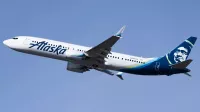
The Boeing MAX is the latest iteration of the Boeing...
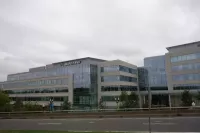
Boeing is a multinational corporation that designs manufactures and sells...

News encompasses information about current events disseminated through various media...
Trending

26 minutes ago Hozier to Headline Portland Concerts After Soundside Music Festival Cancellation
26 minutes ago Prince Andrew Faces Scrutiny Over Jeffrey Epstein Ties; Demands to Testify Publicly

26 minutes ago Ninel Conde faces criticism and a diva duel in 'La Casa de los Famosos'.
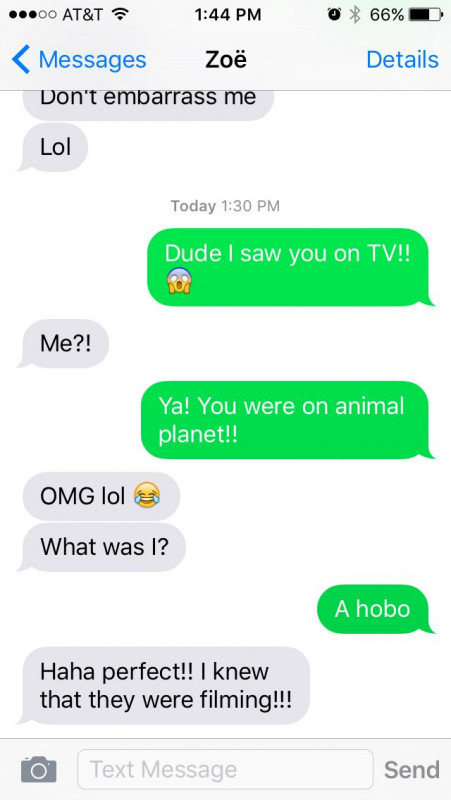
27 minutes ago Los Ratones might skip EMEA Masters for LoL Worlds in China, Paris Finals.
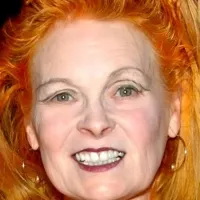
27 minutes ago Vivienne Westwood's Company Addresses Artists' Complaint; Jenna Ortega on Overwhelming Fame.
21 days ago Orix Buffaloes: Teranishi aims for two wins, Kurebayashi hits grand slam, Udagawa resumes.
Popular
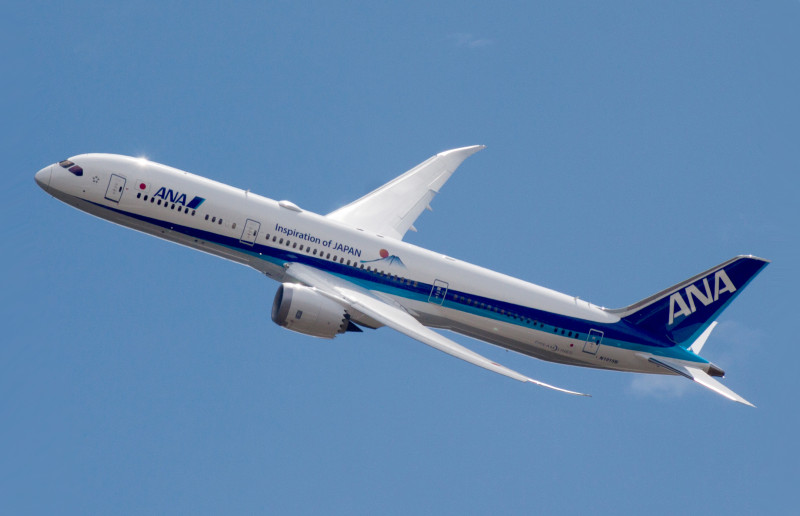
The Boeing Dreamliner is an American wide-body airliner developed by...
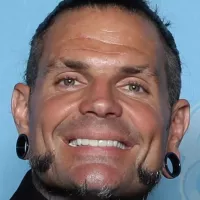
Jeff Hardy is an American professional wrestler currently signed with...

Jupiter is the fifth and largest planet from the Sun...
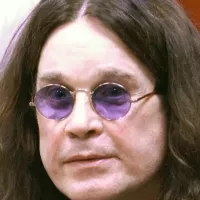
John Michael Ozzy Osbourne is a prominent English singer songwriter...

Jeff Bezos is an American businessman renowned as the founder...

Candace Owens is an American political commentator and author known...
